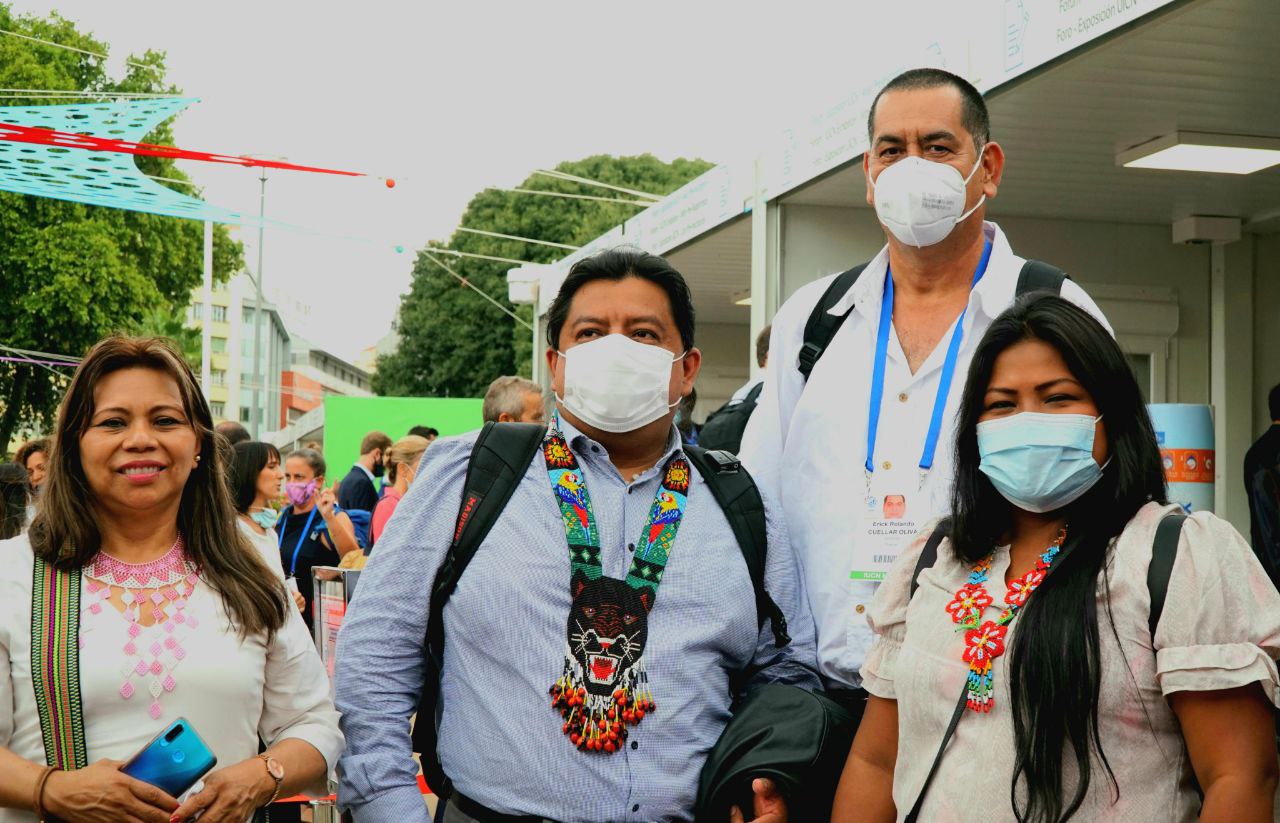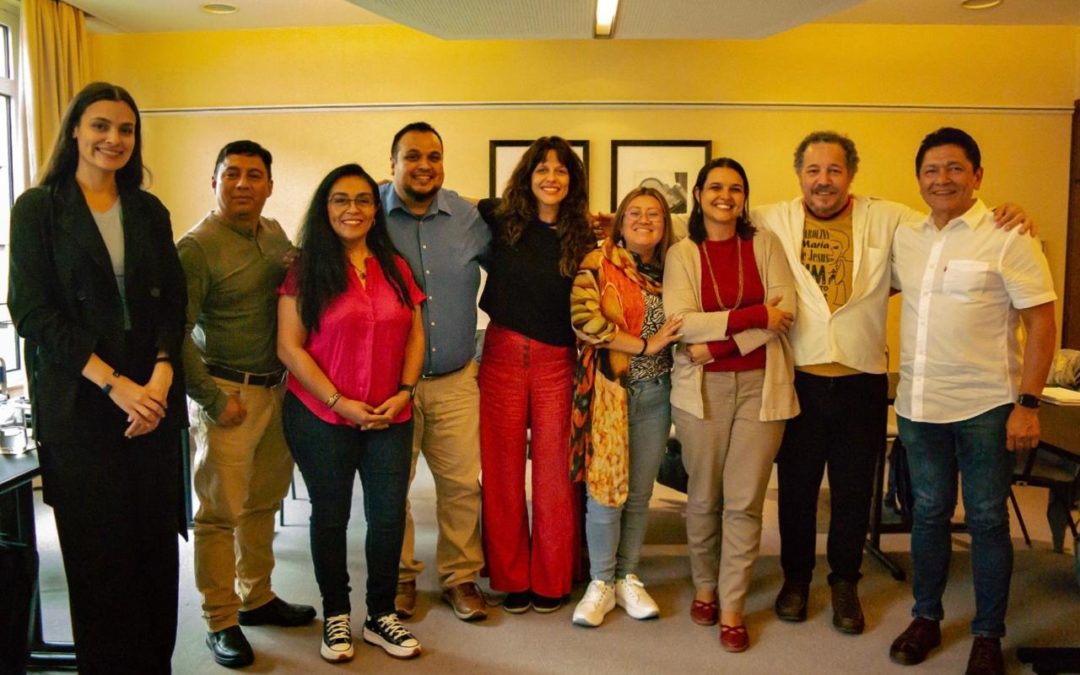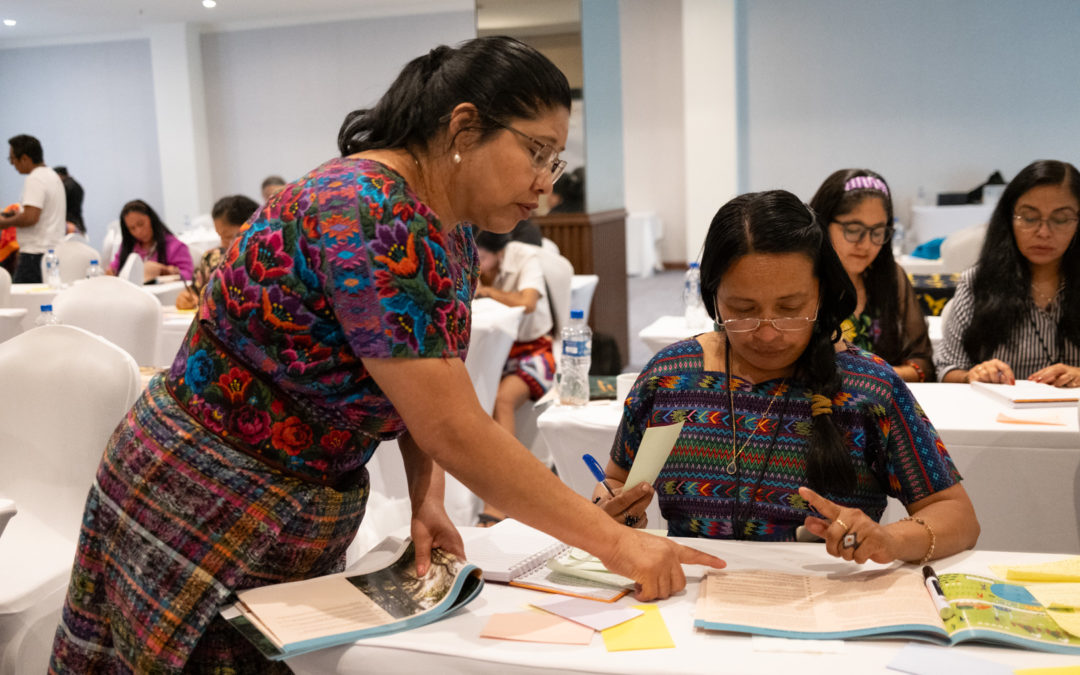A delegation of the Global Alliance of Territorial Communities (GATC) is participating in the IUCN World Conservation Congress in Marseille, France, to ask members to include communities in biodiversity conservation strategies. The Alliance of indigenous peoples and local community representatives have a clear message: “without us, the world cannot overcome the climate crisis or protect existing forests”.
Facing threats that later turn into imported deforestation to Europe, indigenous and local communities remind the world that conservation cannot exist without the frontline defenders.
The IUCN World Conservation Congress is where the world comes together to determine priorities and guide actions for conservation and sustainable development. This year, the Congress takes place from September 3 to 11 in Marseille, France. Representing the Mesoamerican Alliance of People and Forests are Sara Omi, from the AGCT women’s coordination space and President of the Coordinator of Territorial Women Leaders of Mesoamerica; and Erick Cuellar, Deputy Director of the Association of Forest Communities of Petén (ACOFOP), in Guatemala.
Community Based Solutions
The GATC will host the session “Community based solutions for climate change and protection of Wildlife” at the Ecosystem Restoration Pavilion, on Saturday September 4, 12:15h.
Indigenous and local forest-dwelling communities around the world have effectively protected these ecosystems for millennia. Forest management based on ancestral knowledge and the symbiotic relationship of indigenous communities with nature are essential to mitigate and adapt to climate change: the lands managed by these communities have lower levels of deforestation and better carbon storage capacities.
With this argument, the AGCT promotes a vision of “Nature and Community Based Solutions”, which enhances the work they already do for the benefit of all humanity. To achieve this vision, it is necessary to guarantee direct territorial financing; the protection of male and female leaders against criminalization and assassinations; rights over territories; Free and Informed Prior Consent; and respect for ancestral knowledge. In addition, in the current context, the urgent support of the international community in the vaccination and containment efforts of the COVID-19 pandemic is vital to ensure the survival of communities, necessary for the survival of Mother Earth.
About the Global Alliance of Territorial Communities
The GATC delegation is composed of Gregorio Mirabal, General Coordinator of COICA; Sara Omi, from the AGCT women’s coordination space and President of the Coordinator of Territorial Women Leaders of Mesoamerica; Claudette Labonté, Women and Family Coordinator of COICA; Tabea Casique, COICA Coordinator of Education, Science and Technology; Fanny Cuiro, Coordinator of Women and Family of the National Organization of Indigenous Peoples of the Colombian Amazon (OPIAC); and Erick Cuellar, Deputy Director of the Association of Forest Communities of Petén (ACOFOP), in Guatemala.
GATC member organization, the Coordinator of Indigenous Organizations of the Amazon Basin (COICA), is taking part in the activity as an official IUCN member, in the first Congress that will allow indigenous members to have a vote.
The Global Alliance of Territorial Communities is a coalition of indigenous and local communities from the Amazon Basin, Brazil, Indonesia and Mesoamerica. Together we represent 35 million forest peoples in 24 countries, and 800 million hectares of forests. Four territorial organizations make up our alliance: The Coordinator of Indigenous Organizations of the Amazon Basin (COICA), the Articulation of Indigenous Peoples of Brazil (APIB), the Mesoamerican Alliance of Peoples and Forests (AMPB), the Alliance of Indigenous Peoples of the Archipelago (AMAN), and the Network of Indigenous and Local Communities for the Sustainable Management of Forest Ecosystems in Central Africa (REPALEAC).



